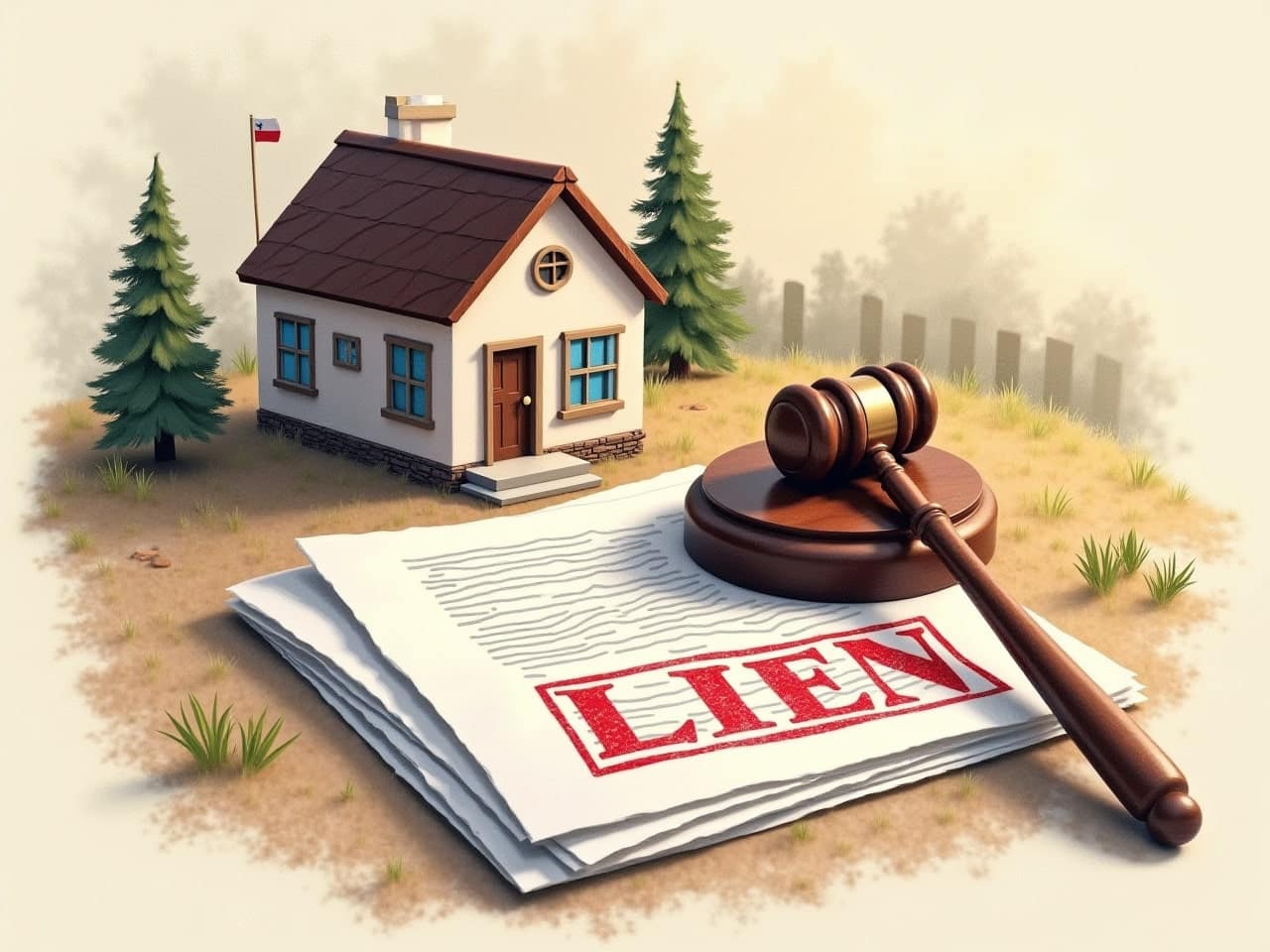Why a Notice of Intent to File Lien is Crucial
If you’re a contractor, subcontractor, or supplier in the construction industry, knowing how to prepare a notice of intent to file lien can save you time and ensure you get paid for your hard work. But what exactly is this notice, and why is it so important?
A notice of intent to file lien is a legal document that serves as a final warning to the property owner that you plan to file a lien due to non-payment. Similar to a demand letter, which also acts as a formal warning about potential consequences of non-payment, this notice isn’t just a formal complaint—it’s a crucial step in the lien process that can significantly motivate the property owner or general contractor to settle the outstanding payment swiftly, avoiding more severe legal consequences.
Understanding the Notice of Intent to File Lien
What is a Notice of Intent to File Lien?
A Notice of Intent to File Lien, also known as an intent to lien, is a formal warning sent to the property owner. It tells them you plan to file a mechanics lien because you haven’t been paid. This notice is a legal document that says you mean business.
Why is a Notice of Intent to File Lien Important?
This notice is important because it often gets you paid without having to file a lien. It’s your final warning to the property owner to settle the debt. If they don’t, then you can move forward with filing the mechanics lien.
Timing
The notice must be sent within a specific timeframe before you file the mechanics lien. Each state has different rules, so it’s important to check the deadlines in your area.
Effectiveness
Sending this notice is often enough to get the property owner to pay up. It saves you the hassle of filing a lien and can speed up the payment process.
Save Time with Online Platforms
Using an online lien filing platform can save you a lot of time. It is important to correctly prepare a lien form when using these platforms to ensure compliance with legal requirements. These platforms help you ensure you don’t miss any deadlines and that your notice is filed correctly. This way, you can get paid sooner and focus on your work.
By understanding the purpose and importance of a notice of intent to file lien, you can effectively protect your lien rights and influence timely payments.
Understanding the Notice of Intent to File Lien
A Notice of Intent to File Lien (NOI) is a legal document that serves as a final warning to relevant parties, including property owners, general contractors, and other stakeholders on a construction project. It informs them that if payment is not made, the claimant will file a mechanics lien. This document is crucial in the construction industry, where non-payment issues are common.
An NOI acts as a powerful motivator for payment because it signals the seriousness of the claimant’s intent to pursue legal action if the debt remains unpaid. Unlike a mechanics lien, which is filed with the county recorder and encumbers the property, an NOI is not recorded but still carries significant weight.
Why is a Notice of Intent to File Lien Important?
The importance of a Notice of Intent to File Lien cannot be overstated. Here are some key reasons why it is essential:
Legal Protection
An NOI provides legal protection for contractors, subcontractors, and suppliers. It ensures that their right to file a mechanics lien is preserved. In some states, serving an NOI is a mandatory step before filing a mechanics lien.
Payment Motivation in a Payment Dispute
Statistics show that a significant percentage of NOIs result in payment within a short period, which is faster than the industry standard. This makes it an effective tool for resolving a payment dispute and motivating payment without needing to file a mechanics lien.
“Sending an NOI often results in payment without the need to file the actual lien.”
Lien Rights
Filing an NOI is crucial for preserving lien rights. In certain states, an NOI must be sent within a specific timeframe to maintain the right to file a mechanics lien.
Property Sale and Refinance
A mechanics lien can make it difficult or impossible for property owners to sell or refinance their property. Knowing that an NOI is a precursor to a lien often motivates property owners to settle the debt promptly.
By understanding the purpose and importance of a notice of intent to file lien, you can effectively protect your lien rights and influence timely payments. This document is an indispensable tool in the construction industry for ensuring that you get paid for your work.
Steps to Prepare a Notice of Intent to File Lien
Whether you use an online lien filing platform, hire an attorney or decide to try filing on your own, there are certain steps you will follow. Of course, a comprehensive online lien filing platform will have all of the documents, deadlines and online filing services for you, helping you save time and considerable money – all while giving you online access to all of your documents and where your lien documents are in the process.
Step 1: Gather Necessary Information
Before you draft a notice of intent to file lien, you need to collect all the essential details. This step ensures that your notice is accurate and complete, which can prevent delays and disputes.
Property Owner Information: Get the full name and address of the property owner.
Project Details: Include a description of the project and the work performed.
Unpaid Amount: Clearly state the amount that is overdue.
Contractor and Subcontractor Details: Include names and contact information for all contractors, subcontractors, and the prime contractor involved.
Having all this information at hand will make drafting the notice much easier and quicker.
Step 2: Draft the Notice of Intent to File Lien
Once you have gathered all necessary information, the next step is to draft the notice.
Legal Language: Use clear and concise legal language. This ensures that the notice is taken seriously.
Required Information: Include all the details you gathered in Step 1. Make sure to specify the unpaid amount and the consequences of non-payment.
Template Usage: Using a template can save you time and ensure you don’t miss any critical information. Many online platforms offer free templates.
Notarization: Some states require the document to be notarized. Check your state’s requirements and get the notice notarized if necessary.
Step 3: Serve the Notice of Intent to File Lien
After drafting the notice, you need to serve it to the property owner.
Certified Mail: Send the notice via certified mail with a return receipt. This provides proof that the notice was received.
Proof of Service: Keep the return receipt as proof of service. This is crucial if you need to escalate the matter.
Deadlines: Be aware of the deadlines for serving the notice. Each state has specific timelines that must be adhered to.
Step 4: Follow Up and File the Mechanics Lien if Necessary
If the property owner still does not pay after receiving the notice, you may need to file a mechanics lien claim.
Payment Follow-Up: Give the property owner a reasonable amount of time to respond and make the payment.
Filing Mechanics Lien: If payment is not received, proceed with filing the mechanics lien claim. This involves submitting the lien to the town clerk or recorder of deeds.
Enforcement: Once the lien is filed, it can be enforced through legal proceedings if necessary.
By following these steps, you can prepare and serve a notice of intent to file lien efficiently and effectively. This process helps protect your rights and increases your chances of getting paid for your work.
Best Practices and Tips
Ensuring you get paid on time for your work as a contractor involves more than just doing a great job. You need to follow the right steps and avoid common mistakes when dealing with legal documents like the notice of intent to file lien (NOI). Here are some best practices and tips to help you navigate this process smoothly.
Common Mistakes to Avoid
Using an online lien filing service is your best way to avoid common mistakes, such as:
Missing Deadlines: Each state has specific deadlines for serving notices and filing liens. For example, in Rhode Island, you must serve the preliminary notice within 200 days of your last service. Missing these deadlines can result in losing your lien rights.
Incorrect Information: Ensure all details in your notice are accurate. Incorrect names, addresses, or project details can invalidate your notice. Always double-check your information before sending it out.
Overcharging: Only claim the amount you are legitimately owed for your services. Overcharging can invalidate your lien and damage your credibility. In Rhode Island, you cannot claim attorney fees or other miscellaneous costs in your lien.
Lack of Proof: Always keep proof of delivery for your notices. Use certified mail with a return receipt to ensure you have a record of when and to whom the notice was delivered.
Early Notice
Serving a preliminary notice early in the project can help establish your lien rights and encourage timely payments. This notice acts as an introduction and sets the expectation that you will be monitoring payment closely.
Accurate Claims
Always base your claims on the actual amount owed for your services. Providing accurate estimates and avoiding inflated charges will help maintain your credibility and avoid legal issues.
Multiple Notices
For long-term projects, be prepared to send multiple notices if necessary. Keeping track of your timelines and serving notices at the right intervals can help you stay on top of your lien rights.
Legal Advice
Consulting with a legal expert can help you navigate the complexities of filing notices and liens. They can provide guidance specific to your state’s laws and help ensure all your documents are correctly prepared and filed. Alternatively, an online lien filing service will have the proper legal documents for you to complete online. The best ones will file for you and even offer online notary services.
Streamline Process
Automate as much of the process as possible. Use digital tools to track overdue payments, send reminders, and manage your documentation. This can help you stay organized and avoid missing critical deadlines
By following these best practices and avoiding common mistakes, you can protect your payment rights and ensure a smoother process when dealing with notices of intent to file lien.
Conclusion
At Texas Easy Lien, we understand the complexities and stress involved in preparing and filing a notice of intent to file lien. That’s why we offer an online platform designed to make this process convenient and affordable for you.
Our platform guides you through each step, ensuring you meet all the legal requirements specific to Texas cities. From gathering necessary information to drafting and serving your notice, we provide all the tools you need to secure your lien rights and recover payments quickly.
Why Choose Texas Easy Lien?
Convenient: File a lien from your home or office, anytime.
Affordable: Save money compared to traditional legal services.
Comprehensive: Our platform covers all aspects of lien filing, ensuring you don’t miss any critical steps.
Local Expertise: We specialize in Texas lien laws, so you can be confident your documents are compliant.
By using Texas Easy Lien, you can streamline the process, avoid common mistakes, and focus on what you do best—running your business. Don’t let payment disputes slow you down. Take control of your payment recovery today with Texas Easy Lien. Ready to get started? Start a new claim today.


